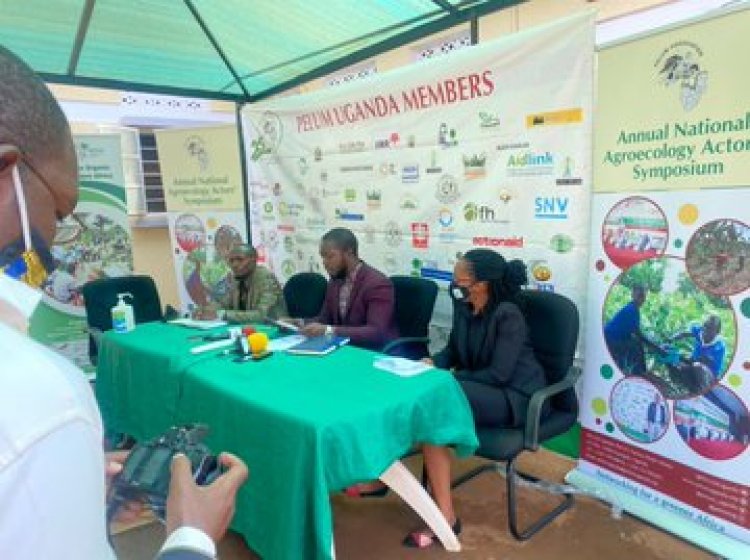The National Agroecology actors’ symposium is set to provide platform for transforming food systems.
The annual branding events of: The 3rd National Agroecology Actors' symposium (NAAS) on Wednesday 27th October 2021 and The 11th Annual Indigenous Food and seed fair (IFF) on 28th October 2021, will share experiences and strategies for food systems transformation and showcasing the contribution of indigenous foods and plants towards strengthening community resilience to COVID-19 and promoting sustainable agro-biodiversity management in food systems in Uganda.

PELUM Uganda and other key actors have organized the 3rd National Agroecology Actors’ symposium (NAAS) slated for Wednesday 27th October 2021, at Silver springs hotel in Bugolobi aimed at providing a platform for agroecology actors to share experience and strategies for food systems transformation through scaling up of agroecology in Uganda.
The theme of the symposium is: “Transforming Uganda’s food systems through agroecology”
PELUM Uganda will also hold the 11th Annual Indigenous Food and seed fair on 28th October 2021 at the same venue focusing on “Building back better: strengthening community resilience to COVID-19 through indigenous foods and agrobiodiversity management”
NAAS and the Indigenous food fair will be attended by a wide range of stakeholders including: Civil society organizations, media, private sector, Academia, research institutes, MPs, Development partners among others.
During a press briefing at PELUM offices on Tuesday 26th October 2021, The Program Manager, Sustainable Farming Systems, Josua Aijuka said that agroecology can go a long way in achieving various targets including policy, environment, food security among others while reducing poverty related issues.
“There is a broad consensus that agroecology can be instrumental in achieving a wide range of policy, environment, food security targets from sustainability to reducing poverty” he said
He said that in the recent past, there has been increased attention to challenges faced by the current food systems especially the COVID-19 pandemic which he said has exposed further the vulnerabilities and inefficiencies of the current linear food system.
Commenting on the 11th Annual Indigenous Food and seed fair, he said that the major objective is to showcase the actual and potential contribution of farmer managed seed systems on conservation of agricultural biodiversity, food security and food sovereignty of smallholder farming communities and Uganda at large.
Participatory Ecological Land Use Management (PELUM) Uganda promotes Agroecology as a viable sustainable vehicle for transforming food systems.
Over the years PELUM Uganda has been working on improving the livelihoods off small scale farmers and the sustainability of rural communities through fostering of ecological land use management while sharing good practices and techniques.












